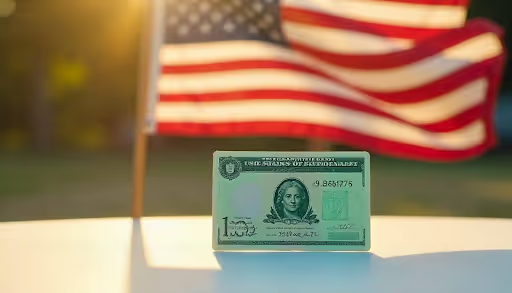.png)
.png)
Don’t have a major award? You can still qualify for the O-1 visa. This guide breaks down how to win an O-1 without top-tier prizes, using smart evidence strategies with Beyond Border.

It’s easy to assume the O-1 visa is only for people with Grammys, Oscars, or global science prizes. After all, the term “extraordinary ability” sounds like a high bar—and it is. But here’s the real truth: you don’t need a major award to get approved.
Many successful O-1 applicants build their case by meeting at least three out of eight evidentiary criteria set by USCIS. These cover a range of professional achievements—from leadership roles to published work, original contributions, media mentions, and more. So if you’re making a real impact in your field, there’s a good chance you already qualify—you just need to frame it right.
That’s where we come in. At Beyond Border, we help professionals like you win O-1 cases—even without headline awards.
The O-1 visa is for individuals with extraordinary ability in sciences, arts, education, business, or athletics. You can apply if you’re at the top of your field—and you can prove it through evidence. While a one-time major award (like a Pulitzer or Olympic medal) can fast-track approval, it’s not the only path.
USCIS lets you qualify by meeting at least three out of eight alternative criteria. These are flexible and can be met in various ways—as long as your documentation is solid and tailored.
Here’s how to build your O-1 case if you're doing great work but don’t have a globally recognized award (yet).
Ready to assess your O-1 profile? Beyond Border offers personalized evaluations.
Let’s break down the O-1 visa criteria and highlight which ones are especially useful if you don’t have a big-name award:
This is often misunderstood. While you may not have a Grammy, even regional, industry-specific, or startup awards can count—if they’re competitive and well-documented. Think: a national innovation prize, an academic fellowship, or a juried film festival win.
If you have something like this, document how the selection process works, who grants the award, and how competitive it is. Make the case for its prestige in your niche.
Are you part of a professional organization that selects members based on achievement or invitation? This criterion is easier to meet if the organization vets candidates based on merit. It doesn’t work for pay-to-join platforms—but exclusive groups, fellowships, or curated communities often qualify.
This is powerful—even if you haven’t won formal awards. Articles, interviews, profiles, and media features about your work show third-party recognition. These can come from:
What matters is that the coverage focuses on you and your impact, not just your company or employer.
This includes serving as a:
Even if you’re early in your career, judging in your space (especially in a curated setting) supports your credibility as a subject-matter expert.
This is one of the most used criteria for O-1 visa applicants without major awards. You’ll need to show that your work has influenced your field, company, or industry. That might include:
This criterion requires deep documentation—think letters from experts, usage stats, and explanations of your innovation’s ripple effects.
Need help articulating your contributions? Beyond Border specializes in evidentiary storytelling.
This is ideal for academics, researchers, or thought leaders. If you’ve written articles in peer-reviewed journals, white papers, or chapters in edited books, that counts. Even if you’re in a non-academic field, content in respected trade publications or conference proceedings can work here.
This one’s all about influence. If you’ve led projects, teams, or strategic initiatives at a recognized company or institution, you can qualify. Your title doesn’t have to be “CEO,” but you’ll need to demonstrate:
Include letters from superiors or collaborators and proof of the organization’s reputation.
You don’t need to be a millionaire—but if your compensation is significantly higher than peers in your location or industry, that’s evidence of extraordinary ability. Use:
Just make sure to compare your earnings accurately to others in similar roles and locations.
So how do you win an O-1 visa without that single, shiny award? The answer is: strategy, documentation, and presentation.
Here’s how to make your evidence work for you:
Want help putting it all together? Beyond Border will guide you step by step.

Even great candidates can get denied if their petition lacks focus or clarity. Here are a few pitfalls to avoid:
Here are some sample profiles of applicants we’ve seen succeed—even without globally famous accolades:
What did they have in common? Clear documentation, strong letters, and a focused story—all of which we help craft at Beyond Border.
Once you’ve filed your petition, USCIS will issue a receipt notice within 2–3 weeks. If you choose premium processing, you’ll get a decision in 15 calendar days. If there’s a Request for Evidence (RFE), don’t panic—it just means USCIS wants more clarity or proof.
You can track your petition using the USCIS case status tool. After approval, you’ll either change status (if in the U.S.) or apply for a visa at a consulate abroad.

If you’re shaping your field, solving important problems, or creating meaningful work, you may already qualify for the O-1 visa—even without the big-name awards.
The key is to identify your strongest criteria, build detailed evidence, and craft a narrative that makes your impact clear.
At Beyond Border, we help talented professionals turn real-world achievements into a winning petition. Let’s make your extraordinary story shine.